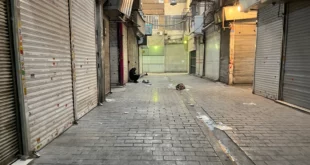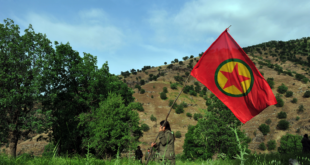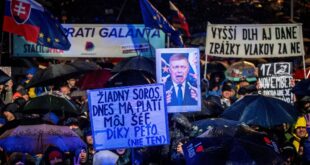The Director-General of Enlargement at the European Commission, Stefano Sannino, on Tuesday arrived on a surprise visit to Macedonia to try to resolve the ongoing political crisis.The EU delegation to Macedonia confirmed that Sannino had arrived in the country but had nothing to add about his agenda.
Unofficially, he has already met Prime Minister Nikola Gruevski and President Gjorge Ivanov and is due to meet the opposition Social Democrat leader, Branko Crvenkovski.
The theme of their discussions will be the political crisis that some fear could derail Macedonia’s EU agenda entirely.
This is Sannino’s second visit since the start of the year. The EU Enlargement Commissioner, Stefan Fuele, is due to arrive next week. Last
month Sannino also came unannounced, as did Fuele.
The European Parliament rapporteur on Macedonia, Richard Howitt, is also due in Skopje on Wednesday, in a last-ditch attempt to move things forward.
The opposition insists it will boycott forthcoming local elections if the government of Prime Minister Nikola Gruevski continues to reject its demand for early general elections.
The Prime Minister seems unshaken so far. “There is
no agreement on early parliamentary elections,” he told his party members on Tuesday.
On February 16, meanwhile, the deadline expires for parties to submit their lists of candidates for the local elections.
If a boycott goes ahead, it will inevitably complicate the local elections, bringing their legitimacy into question, and in turn jeopardizing the country’s EU hopes.
The EU Council has said that any decision on opening accession talks for Macedonia will be based on the next report of the European Commission, due in spring.
The report will assess whether Macedonia has taken real steps towards reaching a deal with Greece over its name, to which Greece objects, has improved relations with Bulgaria and has carried out reforms at home.
The US ambassador to Skopje, Paul Wohlers, on Tuesday urged both political blocs to find a solution.
“All sides involved, parties and individuals, need to be looking carefully at what is in the best interest of the country as a whole and take steps in that regard to help the country,” Wohlers said.
Meanwhile, Gruevski’s ruling VMRO DPMNE party on Tuesday endorsed a motion that plans to limit the time that legislators can spend on discussions in parliament.
The move has additionally angered the opposition.
The political crisis erupted on December 24 when the ruling parties voted for the 2013 budget, in just minutes after the opposition and journalists were forced out of the assembly by security guards.
Since then, opposition supporters have been out on the streets, staging protests and demanding early elections.
 Eurasia Press & News
Eurasia Press & News



